"Where there is an observatory and a telescope, we expect that any eyes will see new worlds at once." -Henry David Thoreau
The night sky is our greatest glimpse of what lies out there, beyond our own world, in the expanse of space we know as our Universe.
With our naked eyes, we are able to see a few thousand stars, the Moon, five planets, the Milky Way and a few other nebulous "clouds" or "fuzzballs." And with just our naked eyes alone, we could learn some remarkable things about the Universe, including the basic structure of our Solar System and the orbital motion of the planets. Based on our understanding of brightness and distance, we could also -- if we assumed that the Sun was just a star -- roughly measure the distance to the stars, too.
But we are not bound by the limits of our eyes any longer.
Thanks to the telescope! Here on Earth, we've been building telescopes and using them for astronomy for just over 400 years now. Initially used to hunt for comets and for exciting features on the planets (such as moons, rings, and atmospheres), it wasn't long before we discovered that there's a whole, well, Universe out there for us to discover.
In addition to not just thousands -- but billions of stars -- we started discovering very strange objects. Initially appearing to be "smudges" in the sky, we built successively larger and more powerful telescopes, built them at higher altitudes to give us less atmosphere to contend with, and developed more and more powerful cameras and optical technologies to help us see what's really out there.
To see how things have improved over time, take a look at Charles Messier's drawing of one of the largest "smudges" in the sky, M31, from his observations in 1764.
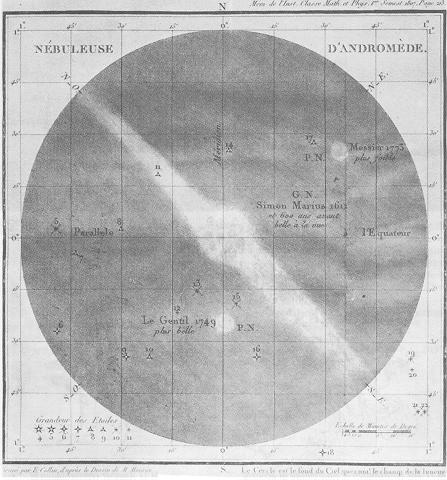
By 1887, technology had improved enough that we could take photographs of this spectacular nebula, and thanks to the power of the internet, Isaac Roberts' famous photograph is right here for you to see.
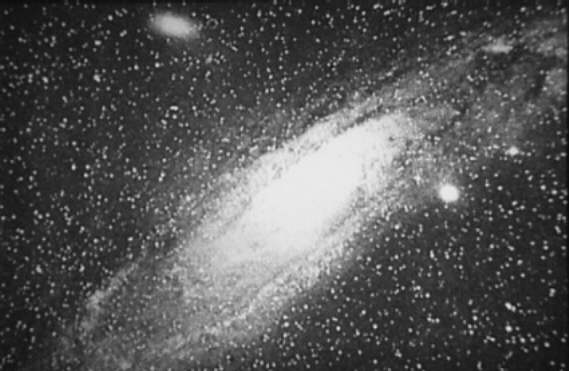
And in 1929, Hubble used his data from observing this very same nebula to determine that this was no nebula, within our own galaxy, but was actually millions of light years away! In no small part, this was because telescope technology, once again, had improved tremendously by 1929, as the image of M31 (below, by Bob Olson) shows.

Over the 20th century, new types of stars -- like pulsars -- were discovered. We found new types of deep space objects, such as quasars, the microwave radiation that was the telltale leftover glow from the Big Bang, and huge clusters and superclusters of galaxies.
Our view of the Universe had gone from a few thousand stars just a few hundred light-years in size to one billions of light years in scale, populated by billions of galaxies, each one containing hundreds of billions of stars, hundreds (or thousands) of globular clusters, with each star -- quite possibly -- containing planets of their own.
And then, in 1990, we went to space. The Hubble Space Telescope literally changed our view of the Universe. Without the atmosphere to contend with, not only were there no worries about clouds, turbulent air, or light pollution, but we could see farther, deeper and for longer amounts of time than we ever could before.
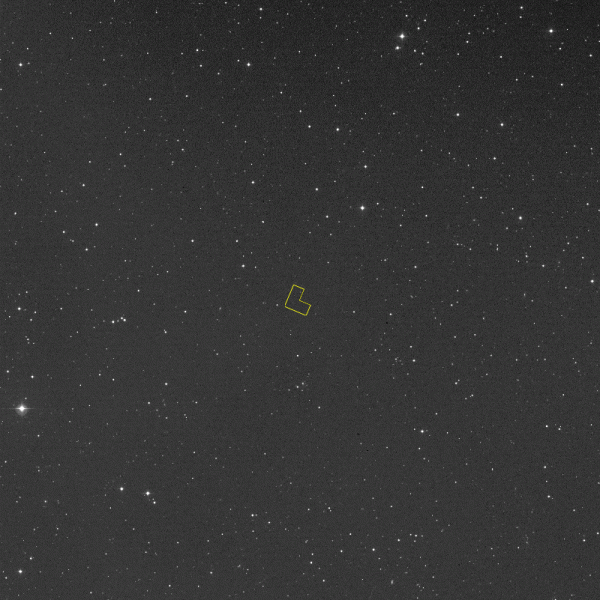
In perhaps Hubble's most spectacular discovery, it was pointed at this very dark, unpopulated patch of sky. With something like 5 or 6 known, very faint stars, no gas, no dust, no nebulae or galaxies or anything else discovered in the background, this was one of the most daring observations ever.
Because it was scheduled to go on for days. Imagine taking the most powerful tool in the world and just aiming at emptiness, monopolizing it for a huge stretch of time, uncertain that you'll even find a single thing of interest. When the data finally came in, here were the results.
Now, with the exception of a few stars (easily identifiable by the "points" emanating from them), everything in this image is a newly discovered galaxy. Even looking at a minuscule segment of the full-resolution version of this image shows a whole slew of beautiful galaxies.
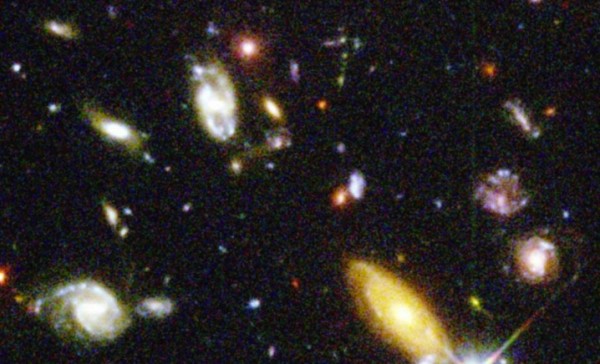
And big deal, you might say, the 1929 picture is at least as good! Yes, but these galaxies are not two million light years away, they are billions of light years away.
Looking for distant galaxies is just one example, of course. Hubble has also been used to find the most distant supernovae in the Universe, find the earliest galaxies and quasars, and -- as a surprise -- discover that the Universe's expansion is accelerating! All because we invested in looking at the Universe in a way we never had before.

That isn't to even mention the unprecedented, high-resolution, beautiful pictures that Hubble has taken, such as of the Pillars of Creation, above, or the other advances we've made in the science of finding planets, learning about star formation, or peering into the hearts of some of the most spectacular objects in the Universe, like star cluster NGC 290, below.
(Previous two images: credit to NASA, Hubble and STScI.)
But Hubble is over 20 years old now. We're at the limit of what we can do with it, and without the shuttle (whose last flight was today), we can no longer service it.
So what's the next step?
The James Webb Space Telescope! With a 6.5-meter-wide set of mirrors for gathering light, this new telescope will leave Hubble in the dust. With a huge range of wavelengths it can cover, from a green color far into the infrared, it will be more sensitive, by a factor of about 100, than all the other telescopes that have come before it.

And we already know some of the new things we'll be able to observe with it. Even more distant galaxies and supernovae than ever before. The formation of solar systems. Direct images of individual, Earth-sized planets around about half the stars on this list, including the ability to detect water, atmospheres and surface features. And -- for the first time -- the ability to directly measure the first stars formed in our Universe.

That means "seeing" into what we currently call the Universe's "Dark Ages."
There are amazing things out there waiting to be discovered, and the James Webb Telescope is something like 85% complete. It just needs to be finished and launched; this is the future of astronomy and astrophysics.
So help save it. If you want more motivation (and more detail) about what James Webb is going to offer us, see this Nobel-Prizewinning astrophysicist's take.
But don't forget how truly awesome this Universe is, and how precious and rare our chances are to glimpse and understand it just a little bit better.


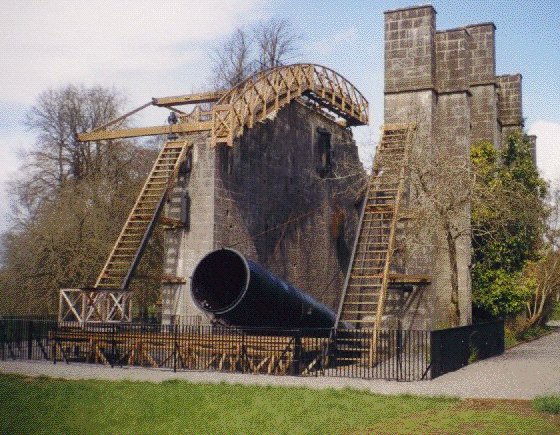
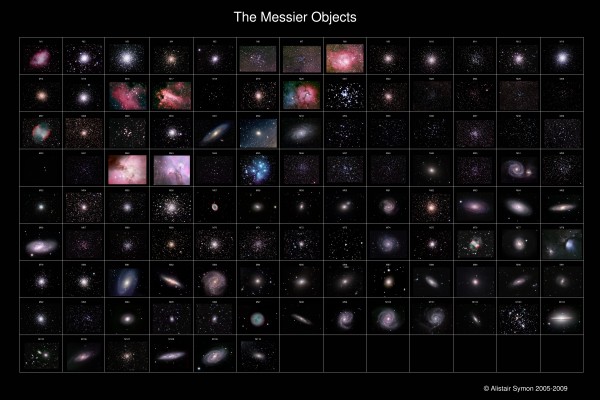

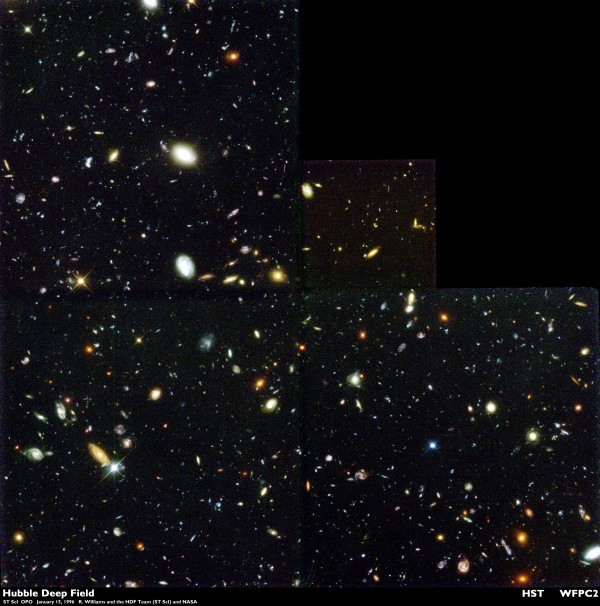
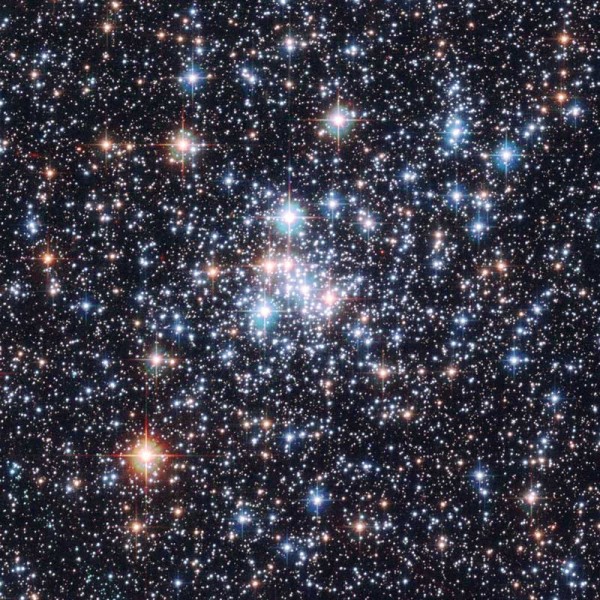

Wasn't there a bit of a problem with the JWST's development so far exceeding budget by over a factor of four?
Personally, I'd rather bring US forces home from Iraq/Afghanistan/Gulf of Sidra/etc and fund basic science, especially in space, with a big chunk of the savings - but I can't entirely blame the House committee that wants to whack astronomy funding for feeling a bit peeved.
Always interesting and valuable info, Great graphics too. Even if you are ten times quicker and more efficient than I am, there is still a lot of valuable time put into this thought provoking material. thanks Nathan!
"....and -- for the first time -- the ability to directly measure the first stars formed in our Universe."
Don't bet any six packs on this prediction however. The Hubble and other space and ground scopes have found many old appearing galaxies at the greatest distances now observable. I expect that the James Webb will see exactly the same types of galaxies in the same proportions that we can see close by, to the limits of its observational capabilities, implying that the universe is far older than the BB model could allow. I believe the consequences will be the beginning of the end for the Big Bang model, but maybe that's only me :)
It is estimated that the Webb Telescope will cost almost $7 billion by the time it's launched (that almost a 40% cost overrun). History shows that it will probably cost even more than that. It won't be launched before 2018, assuming the most optimistic funding estimates.
What could we have done with the money that has been and will be spent on Webb? We could have sent orbiters to every single planet. We could have sent more probes to study the Sun. We could have placed a fleet of rovers on Mars. No doubt Webb would do good science, but so much more could have been done with that money.
It's time to stop putting good money after bad. There's only so many dollars. We should stop wasting it on money pits like the Webb and spend it on more productive projects.
The Webb is too important for scientific exploration and advancement to defund it now. I think the people who say it's a waste of money today will be eating their words in the future after seeing what discoveries come out of it if it's allowed to continue. Many of the same arguments were made in regards to Hubble, but as Ethan so aptly put it, "The Hubble Space Telescope literally changed our view of the Universe."
If you have a moment, check out my previous post about the Webb too: http://www.gradologyblog.com/2011/03/27/the-webb/
Is the stop of the Webb project actually because of the money only, or are there 'people' who actively agitate against this project? If so: who are those 'people'? 'Scientists'? Those, who see the BB in danger? Sorry, very strange behaviour to my opinion...
The Webb is too important for scientific exploration and advancement to defund it now. I think the people who say it's a waste of money today will be eating their words in the future after seeing what discoveries come out of it if it's allowed to continue. Many of the same arguments were made in regards to Hubble, but as Ethan so aptly put it, "The Hubble Space Telescope literally changed our view of the Universe."
Even worse, the Senate Launch System and Orion-by-another-name earmarks increased, even thought there are insufficient funds to build them in any timely manner, nor are any missions described or funded. Commercial crew funding cut, as well, extending the time the US must rely on the Russians for ISS. Might as well just burn the money.
@3
Really? $7 Billion is small potatoes to the $600+ billion spent on the military in 2010 alone. I'm sure there's lots of other things that $7 billion could have been spent on, but its by far, no where near the biggest waste of money. And if it is ever completed and launched I'm sure it wouldn't be a "waste" to expand our knowledge of the universe.
Funny movie:
http://www.youtube.com/watch?v=hPK8lgDhUBc
It may seem like a round-about way to accomplish science but history suggests that science, particularly the kind that is characterized as 'exploration' and requiring huge infrastructure and logistics, can sometimes be best accomplished by being carried by other ventures such as commercial development. I wish, now that we know how to basically operate in space, that we'd focus attention on getting commercial space operations handled by commercial industries who know a thing or two about how to get costs down, put people to work, apply scientific knowledge in practical ways and make a buck. What we need above all is a low cost way to space so that future scientific projects don't die of starvation from being so expensive right at the outset. And by the way, where could I send a contribution to directly fund my share of the JWST? Oh...yeah, scientific subscriptions like that and things like war bonds seem to have fallen out of our consciousness but once upon a time were a good way to get things done...maybe it's time we stop thinking of all good things coming from the tax monster we've created in washington and start getting creative on how to get around it. Cheers.
@Steve Hill:
Only 7 Billion? I'm serious about that 'only.' I live in the San Francisco Bay area. We're building a new east span of the Bay bridge here.. Currently, its total cost is estimated at about 5.5 billion dollars. For one half of one bridge that was first built in the 1930s.
Building a tool that will let us see into the earliest observable history of the universe, for a comparable cost? Cheap beans.
I think the point to remember is that while JWST may be cancelled, this does not mean an end to astronomy. JWST is somewhat analagous to the SCSC in that it is taking a large share of the funds available for astronomy. Also, there is nothing that says the 85% which is "complete" can't be mothballed for 10 or 20 years (though I'm guessing we could probably build a better one then.) In a way, the clamoring to keep funding it is a symptom of our 'must have now' society. A 10, 20 or 30 yr delay is a nothing on the timeline of humanity.
Ethan, very nice summary, particularly the empty space before Hubble and the many galaxies seen with Hubble.
I was in Quebec city recently for their annual music festival. Just a walking vacation with my family. Lots of walking, good music and food. As I look at the second image of this blog post; that picture of an old telescope reminds me of the cannons within the walls of old town Quebec City. There are over 200 cannons just in old town Quebec City.
From 1950 to the present almost 70,000 nuclear missiles have been built worldwide. The cost of the US nuclear weapons program from 1940 to today was about $7 trillion. The world wide cost maybe twice that.
Kitt peak Arizona has 23 telescopes; the Davis Monthan Airforce base has over 4,000 mothballed military planes.
The $7 Billion dollar price for only 1 James Webb Space Telescope is well worth it. My serious question is why we don't build 2 or 3 JAMES Webb telescopes.
The US spends $700 billion per year on military expenditures.
The US bailout cost between $700 Billion and $7 Trillion depending upon...
We are a lucky nation to have dedicated dreamers, who not only do excellent fundamental science; but also do thankless budget battles for Gravity Probe B, Hubble space telescope, Supercollider, James Webb Space telescope and other small or large research projects. Some fundamental research budget battles are won; many are lost.
Doing fundamental science takes more courage and dedication than almost anything else. And when it's over, even amazingly successful like Gravity Probe B, the pay was modest and appreciation is not nearly enough.
Gravity Probe B cost $750 million and for what? Just to know what? Frame dragging. Well yes, to do such research is heroic!
Wasted money ?
Don´t understand some people, this is by far the best way to spend money. If I was rich as Buffett I would give Nasa all my money fore developing these telescopes and things, this is how we learn and understand who we are in universe. We are putting way to much money into war and stupid things that is really really stupid. Stupid people, guess you wan t to back to 1800-hundreds. Kill some indians.
What SOLID proof do you have that proves the big bang theory?There is absolutely no solid evidence for it.
no one @ 15:
GIYF:
http://en.wikipedia.org/wiki/Big_Bang#Observational_evidence
no brains would have been a more apt moniker...
Direct images of individual, Earth-sized planets? Methinks that might be a gamechanger in itself.
Beautifully written Ethan. If the JWST is 85% complete why cannot it be launched by 2015, the original date? I may have missed something you guys are messing at down south of us to cause this delay. Possibly bailing out all those Wall Street wankers and messing with Muslims as in pointless wars that just make the ROTW (Rest of the World) hate you had something to do with it.
I guess we should be grateful that science is still being done in the good old US of A after 8 years of shrubbery that bragged about how stupid he was!
http://whyevolutionistrue.wordpress.com/2011/09/14/dawkins-talks-about-…
Toward the end of this video Dawkins is incredibly tactful about the fact that 40% of Americans believe the bible to be a literal and historical account and thus are stupid and ignorant people. I'd never have thought there was such a polite way to call almost half of a nation stupid - I'm rather blunter which might account for the skeptics getting their knickers in a knot over my Facecrack comments :-) Nah, it's just their politically correct constipation rearing up.
The US spends a bigger share of GNP on science, compared to other large developed nations (I love it when people start using Singapore or the Nordics as the basis for comparison.) Whether we should spend less on defense, is a matter of political judgement (I am a conservative, and believe we do not spend enough, as compared against our own past performance.) Nobody believes the final number for the Webb is going to be seven billion; actually people are talking 13 billion. If this is the case, do you still want the Webb? I do, but I can not justify it: it is a value judgement. But if I had to justify it somehow, I would suggest to slash the size of the Federal government (outside science community :) and reorganize entitlements.
The above is an example of political reasoning that has no place on the blog like this. You are asked by Ethan to help save the Webb; promoting your ideological biases is not helpful, in this regard. Write to your representatives, start a "Save the Webb Campaign Fund" non-profit, campaign for contributions, convince Gates and Buffet to give a few billion dollars, contribute yourself (how about asking NASA scientists to contribute 10% of their annual income?) Regular folks donate to their church, would it not befit you guys to donate to the Church of Science?
Space is a place where god can't exist, this is really something that a brain can't count clearly sometimes. Question: If it took seven days for god to create his small earth, then what about our solar system? We exist but god doesn't exist, this is all science. If we take a little look at the sky in the night and if we have a little knowledge about the space, I believe our senses would never accept this fake god theory anymore.
Hello everyone! I am 9 years old and I have a question... I wonder what the singularity that held the whole universe was in. Was there another universe before our universe? Please answer me if you can! I'm very curious right now. Thank you!
Was This telescope was made to prove God did not create the universe
No, it wasn't.
Though many people looking to save face by pretending to be victims or just looking to frott their persecution complex have said it is.
But what do they know, eh?